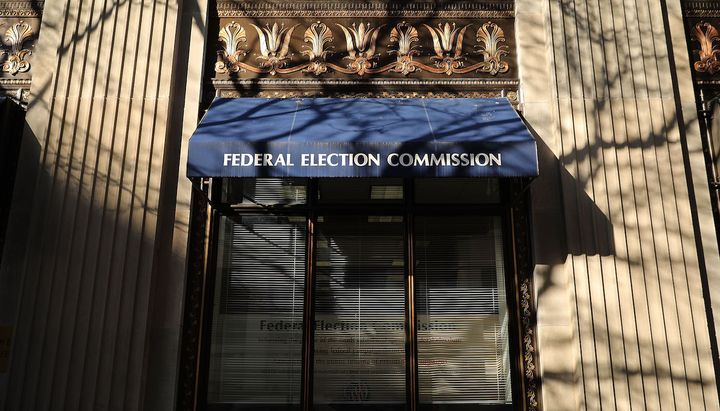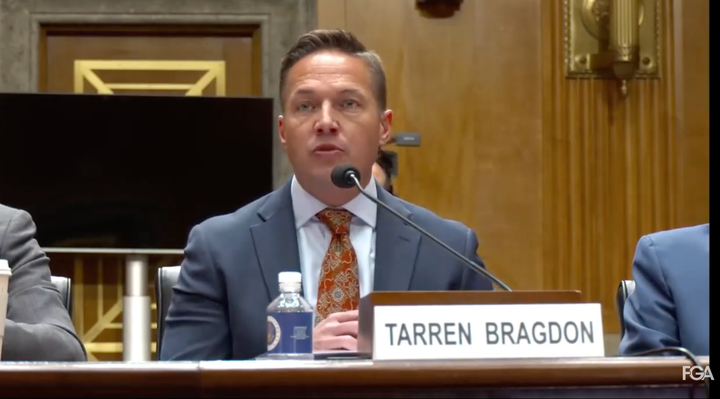The American Prospect is a nonprofit, independent magazine
covering public policy and politics. Sludge is re-publishing this article.
Of all the Federal Election Commission’s many chronic breakdowns in recent years, its failure to take the slightest action to either stave off or respond to Russian meddling in the 2016 election is the most damaging to American democracy.
The FEC repeatedly considered but never approved straightforward new rules to require internet advertisers to better identify themselves, a move that could have helped deter Russian disinformation on social media. And now that Special Counsel Robert Mueller has concluded that the Russian government interfered in the election “in sweeping and systematic fashion,” the FEC remains missing in action.
That the FEC is precisely the gridlocked and ineffectual agency that Congress intended it to be is nothing new. What’s new is that the FEC’s well-documented partisan stalemates have become so routine, and its staff so hollowed-out and demoralized, that the commission has moved from dysfunctional to essentially inoperative. Two new reports, from Issue One and the Brennan Center for Justice at New York University, portray an agency in shambles, no longer able to function at even the most basic level.
Also new is the nature of the threat facing American elections. Even as President Donald Trump plays down the danger of Russian interference, U.S. national security officials are bracing for a new round of Russian cyber attacks and disinformation in 2020. Mueller’s report disclosed for the first time that, within hours of Trump’s appeal to Russia to find Hillary Clinton’s missing emails, Russian government hackers compromised election systems in a Florida county.
Mueller also concluded that the Trump Tower meeting between Trump campaign officials and a Russian government attorney “could implicate the federal election-law ban on contributions and donations by foreign nationals.” Election laws ban soliciting foreign contributions, defined as “anything of value.” Yet Mueller found that Donald Trump Jr., having learned that Russia offered to provide “information that would incriminate” Hillary Clinton, responded: “I love it especially later in the summer,” and promptly set up the meeting.
[Read more: What the Mueller Report Tells Us About Campaign Finance Law and Foreign Interference]
Mueller declined to pursue criminal charges, according to his report, in part because he lacked the evidence to prove that the Trump team acted “willfully”—that is, with the knowledge that their actions were illegal—and in part because the government could have trouble proving that “the value of the promised information exceeded the threshold for a criminal violation.”
But none of that prevents the FEC from taking civil action, argue three watchdog groups in a complaint to the FEC this week. Filed by Common Cause, the Campaign Legal Center, and Democracy 21, the complaint calls on the FEC to enforce the foreign money ban. This week’s complaint supplements an earlier, 2017 complaint that accused the Trump campaign of illegally soliciting contributions in the form of opposition research from foreign nationals. The high bar set for criminal indictment—of a “knowing and willful” violation—does not apply to the FEC in exercising its civil enforcement authority, the complaint notes.
“Given the facts laid out by the special counsel, a failure by the FEC to enforce the law here would be an abdication of its statutory responsibility and would also set a terrible precedent,” said Donald J. Simon, general counsel to Democracy 21, in a statement accompanying the complaint. “It would send the message that meeting with foreign agents to see how much secret help they can provide to a candidate is perfectly fine.”At a recent FEC public meeting that addressed whether the agency would respond to Mueller’s report, GOP Commissioner Caroline Hunter essentially told the public: Don’t get your hopes up.
Yet that is precisely the message the FEC appears to be sending. At a recent FEC public meeting that addressed whether the agency would respond to Mueller’s report, GOP Commissioner Caroline Hunter essentially told the public: Don’t get your hopes up. “I would hate to give any member of the public false hope—our jurisdiction is limited,” declared Hunter at the meeting, reported The Center for Public Integrity.
In fairness, commission Democrat Ellen Weintraub, the FEC’s current chair, has repeatedly called on the agency to head off foreign interference threats—only to be rebuffed by the agency’s GOP commissioners.
“I’m very, very worried about the message this is sending to our foreign adversaries and to the American people,” says Daniel I. Weiner, senior counsel at the Brennan Center’s Democracy Program. Weiner authored the Brennan Center report released this week, which details the FEC’s soaring partisan stalemates, dwindling enforcement, and mounting staff vacancies.
A recent Issue One report similarly concluded that the FEC “lacks the budget, teeth, and staff to get the job done.” The agency is limping along with only four commissioners, with no votes scheduled on nominees, has been bleeding staff at the highest levels, and now lacks both a permanent general counsel and an inspector general, as well as a deputy inspector general, among other vacancies.
In the long run, the agency needs a top-to-bottom overhaul along the lines of what House Democrats recently approved in their “For the People Act” democracy reform package. That bill will not be taken up in the GOP-controlled Senate, but provides a blueprint for some future Congress. In the meantime, Democrats on the House Administration Committee have launched a long-overdue oversight effort, sending the FEC a list of 46 questions about its key vacancies and enforcement backlog, among other matters.
Members of Congress should also ask the agency how it plans to respond to Mueller’s evidence of campaign finance violations. At a time when the threat of foreign interference has never been more well documented, the nation’s elections enforcement watchdog has never been weaker. It’s a dangerous combination.
Related:



